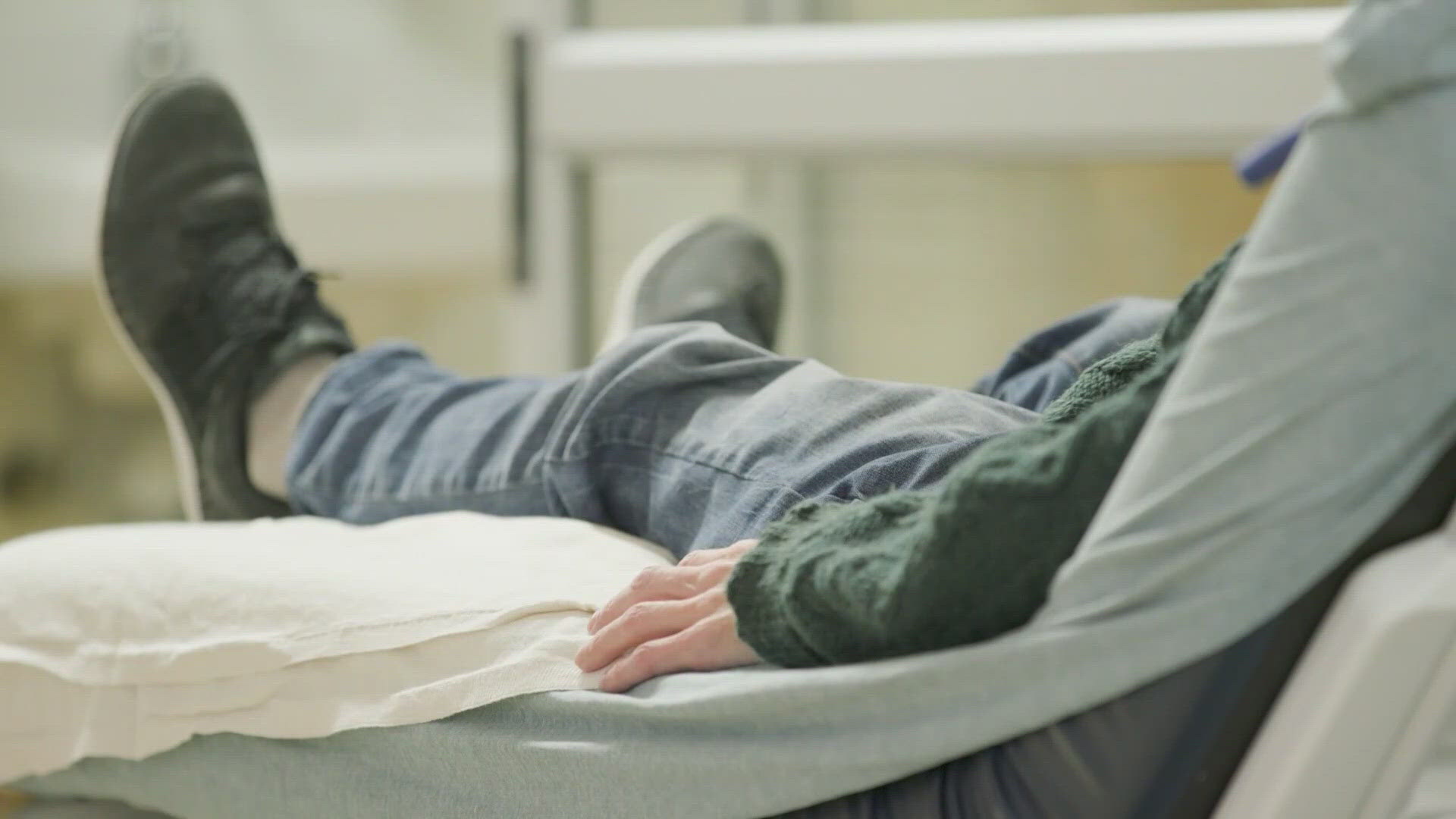AUGUSTA, Maine — State data shows nearly 700 kids with the most severe mental health needs were stuck in emergency departments across Maine at various times in the last year because of a chronic shortage of pediatric treatment beds and services.
Parents, mental health advocates, hospital officials, and physicians have begun meeting weekly to address this crisis. One plan is to build a long-term pediatric residential treatment facility, the first in Maine, where kids can get the care they need 24/7.
The demand for treatment for Maine's most vulnerable kids is putting more strain on an increasingly fragile system.
"We have seen an increase in children with developmental disabilities who are landing in our emergency department," Katie Harris, the chief government officer for MaineHealth, said
According to Harris, 259 children were stuck in MaineHealth emergency departments from January to May this year for more than 48 hours. The average stay is four and a half days, with the longest being two months.
The Northern Light Health system reports that the monthly average in 2024 is 63 kids showing up in emergency rooms, with the average stay being a little more than a day.
Maine has lost 152 beds in programs that treat children with mental health problems and intellectual and developmental disabilities in five years. The latest came this summer when Spurwink closed three residential treatment programs, leaving only two programs in the state that take MaineCare.
Lindsay Hammes, the Maine Department of Health and Human Services spokesperson, told NEWS CENTER Maine the following in a statement:
"The Department of Health and Human Services (DHHS) is committed to strengthening the children’s behavioral health care system and ensuring timely access to services and treatment. DHHS is deeply concerned about the closure of residential treatment programs for youth and the staffing challenges that contributed to the circumstances that led to these closures. The Department has worked closely with providers, including Spurwink, to identify and facilitate alternative placements for youth and develop plans for each resident who transitioned from closing treatment locations.
"DHHS is also committed to working with providers to understand better the challenges that they are facing and to support systemic solutions, including the review of reimbursement rates and strengthening models of service delivery that can support the complex needs of children and youth with autism and intellectual and developmental disabilities."
Jessica Reed's 11-year-old son is on the autism spectrum. Brody is nonverbal and has severe behavioral needs and other challenges.
"I would get called at least once or twice a week to pick him up from school because it was to the point where they couldn't handle him," Reed, a mom of two from Friendship, recalled.
The boy spent nearly a year waiting for a bed at Spring Harbor Hospital, but his family cared for Brody at home rather than have him languish in the ER.
"They are not equipped at all to deal with the very high crisis point these kids are going through; all they can do is sedate them, and they don't get the treatment they need," Reed explained.
Dr. Andrew Ehrhard is an emergency room doctor and the president of the Maine Chapter of the American College of Emergency Physicians, which represents more than 200 physicians across the state. He said he regularly hears from emergency room doctors.
"They don't want these kids to be stuck in the ER with nowhere to go and nothing to do, it causes burnout and moral injury," Dr. Ehrhard said.
He, along with parents, mental health advocates, physicians, hospital administrators, disability rights advocates, and DHHS officials, are meeting weekly to address the crisis.
Under a law passed earlier this year, the group is tasked with making recommendations, including setting a timeline for establishing the first secure children's psychiatric resident treatment facility and other strategies to provide more outpatient services. This is also a significant step toward stopping the flow of dozens of children being sent to treatment facilities outside of Maine, including as far as Arizona.
State Rep. Lori Gramlich, D-Old Orchard Beach, is a licensed social worker who has sponsored legislation to provide treatment and services for children and adults with behavioral health issues.
"I will continue to advocate that we bring these 67 home and not place any more kids out of state," Gramlich said.
She hopes the recommendations will result in meaningful legislation that will bring about real change for kids with the highest needs.
According to Hammes, DHHS is reviewing relevant data and analysis of the capacity, occupancy, availability, and access to children’s residential services for youth in and out of state. DHHS will use this analysis to identify further needs and support future policy development.
A final report and recommendations must be submitted to the joint standing committee of the Legislature by Nov. 6.

